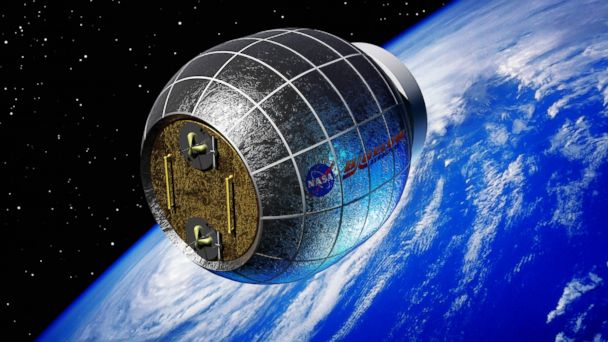Will ISS Troubles Dampen Civilian Space Efforts?

Credit: Bigelow Aerospace, LLC
Will the International Space Station's latest hiccup throw a wrench in the plans of business moguls who hope to launch the first humans into space to vacation near the moon and perhaps even colonize Mars?
Giant strides within the space industry could lead to an aerospace hotel within a few years, and fortunately, the space station's partial shutdown this week won't slow them down, says John Spencer, President of Space Tourism Society.
The space tourism industry is linked to one of the most complex human constructions, NASA's International Space Station, which experienced a partial shutdown on Wednesday.
When asked whether NASA's budgetary constraints will pose problems in assisting the space station, a NASA spokesperson told ABC News that "they have enough money in the budget to cover it."
Read more: ISS Cooling System in Partial Shutdown
A habitable artificial satellite acting as a laboratory 200 miles above Earth, the space station holds docks for spacecraft to be tested, launched into space and sometimes back, including potential tourist vehicles.
This year, NASA announced a $17.8 million contract with Bigelow Aerospace LLC, a technology start-up, to construct an inflatable module at ISS. The company is developing revolutionary space habitats, some prototypes for which have been in orbit since 2006. Bigelow Aerospace is going to build and test a spacecraft, or aerospace hotel docked at ISS. Spencer says this will be an aerospace hotel for those who want to experience space-living and it will launch after a "couple of years."
Meanwhile, the supply of future space tourism services, led by the world's notable entrepreneurs, seems to be growing along with demand for them.
In 2002, Tesla Motors founder Elon Musk launched SpaceX as the first private space flight company, which is expanding its space transport technologies in engines and spacecraft. Early this month, the company launched its first major communications satellite during its third attempt.
Amazon CEO Jeff Bezos launched an aerospace company, Blue Origin, that is developing technologies to enable lower-cost human access to space.
According to Mars One Foundation, non-profit aiming to establish a permanent human settlement on Mars, said more than 200,000 people have signed up to take a trip to Mars. The Mars One Foundation announced partnerships with Lockheed Martin for a human exploratory mission in 2018.
Virgin Galactic, the brainchild of Sir Richard Branson, has its eyes on offering commercial space trips to the moon as their technology advances.
Read more: PayPal Galactic Looks to Solve Payments in Space
However, the International Space Station has not been used as a tourist station for a number of years, says Spencer. He hopes to see more return docks at the station that can provide additional spaces.
That hope is for personal interests, in part. Spencer says he's been making models of "orbital super yachting" with the vision of a yacht in space in which humans will travel from Earth to orbit.